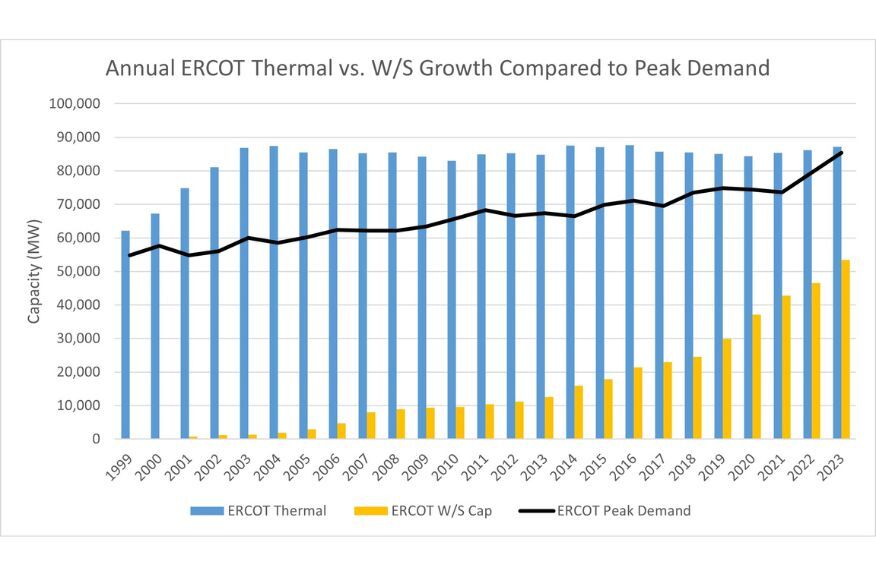Who’s in control here? Texas court rules power companies not responsible for 2021 blackouts
A judge panel from the First Court of Appeals in Houston ruled this week that electric companies in Texas can’t be held liable for failing to supply electricity to consumers during the 2021 Texas blackouts.
The Texas blackouts of February 2021 resulted in hundreds of deaths and occurred due to a shortage of reliable generating capacity on Texas’ electricity grid.
Due to this ruling, those impacted by the blackouts are lost on who to hold accountable. This is because the Supreme Court of Texas already ruled that the state’s grid operator, the Electric Reliability Council of Texas (ERCOT), also can’t be held liable for not maintaining reliability, despite the organizations name and the fact that one of its four primary responsibilities is to “maintain system reliability.”
In both cases, it’s hard to hold 100 percent of the blame on Texas power companies or ERCOT because of the confusing nature of responsibility on the Texas electric grid. Suing ERCOT, in fact, would simply lead to more costs for ratepayers because ERCOT is funded entirely by fees charged to consumers.
So, if the reliability council of Texas isn’t responsible for maintaining reliability, and neither are the power service companies who provide electricity to millions of customers, then I have a question:
Just who IS responsible for grid reliability in Texas?
Based on the state’s awful track record when it comes to blackouts, it may not be a surprise to hear that nobody really knows. In fact, the answer may simply be no one and everyone at the same time – including electricity consumers, who ERCOT calls on repeatedly throughout the year to reduce electricity usage and help keep the grid from collapse.
Another organization, the Public Utilities Commission (PUC) of Texas, also has a mandate to ensure reliable electricity service, yet a 2022 report found it “is woefully under-resourced given its critical responsibilities and the work that still lies ahead,” noting further that the PUCs staff size of only 166 people isn’t adequate to “oversee utility industries vital to the wellbeing of Texans.”
The lack of any real reliability organization in Texas has led to questionable decisions on behalf of participants in its energy market, which is currently proving unable to respond to price distortions coming from the federal government – mainly in the form of subsidies for wind and solar facilities that increase revenues for renewables, decrease revenues for reliable plants, and generally incentivize poor decisions.
Without an organization with the authority to make changes to bolster reliability, poor market decisions have been coming at the expense of reliable generation.
For example, as the graph below shows, to supply rapidly growing electricity demand in Texas over the last decade, the state has relied solely on energy sources that are dependent on the weather, rather than reliable facilities that are able to respond to changes in electricity demand on the spot, such as coal, natural gas, and nuclear.

Unfortunately for Texas, this means that when unfavorable weather conditions occur, as they did in February 2021, blackouts are a very real possibility.
The latest blackout in Texas has proven an unfortunate truth within the state: nobody has been at the reins of grid reliability for a very long time, and it’s showing. This latest ruling is only one affirmation of this reality.
Following the chain of command in Texas, the Texas governor and legislature seem to have the most authority and final say regarding decisions about grid reliability, if only for the lack of designating the duty to anyone else who can take on the challenge. This is unfortunate for those looking to hold someone accountable for the tragic 2021 blackouts, and for all Texans moving forward who are wondering how they’re going to fare in the coming winters.